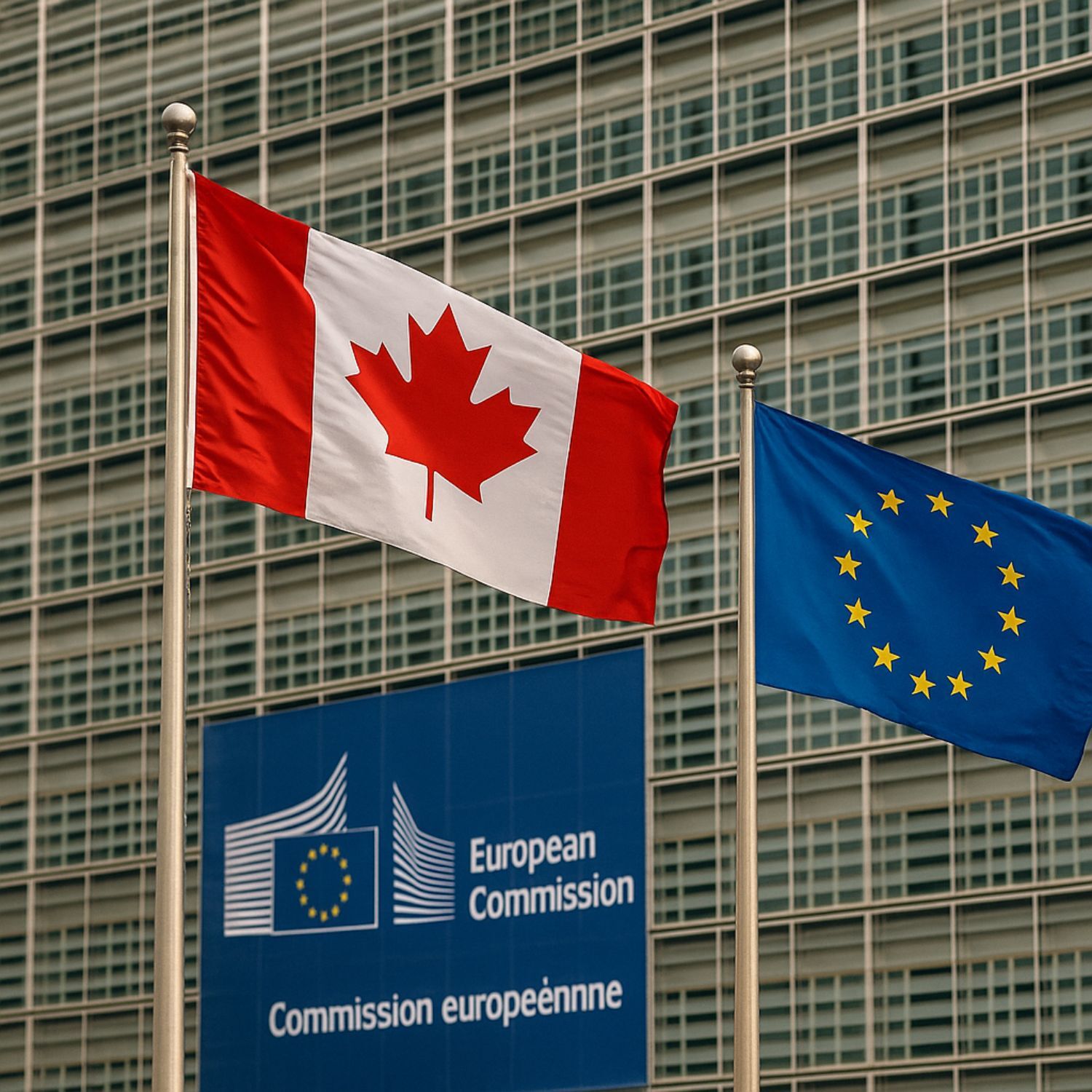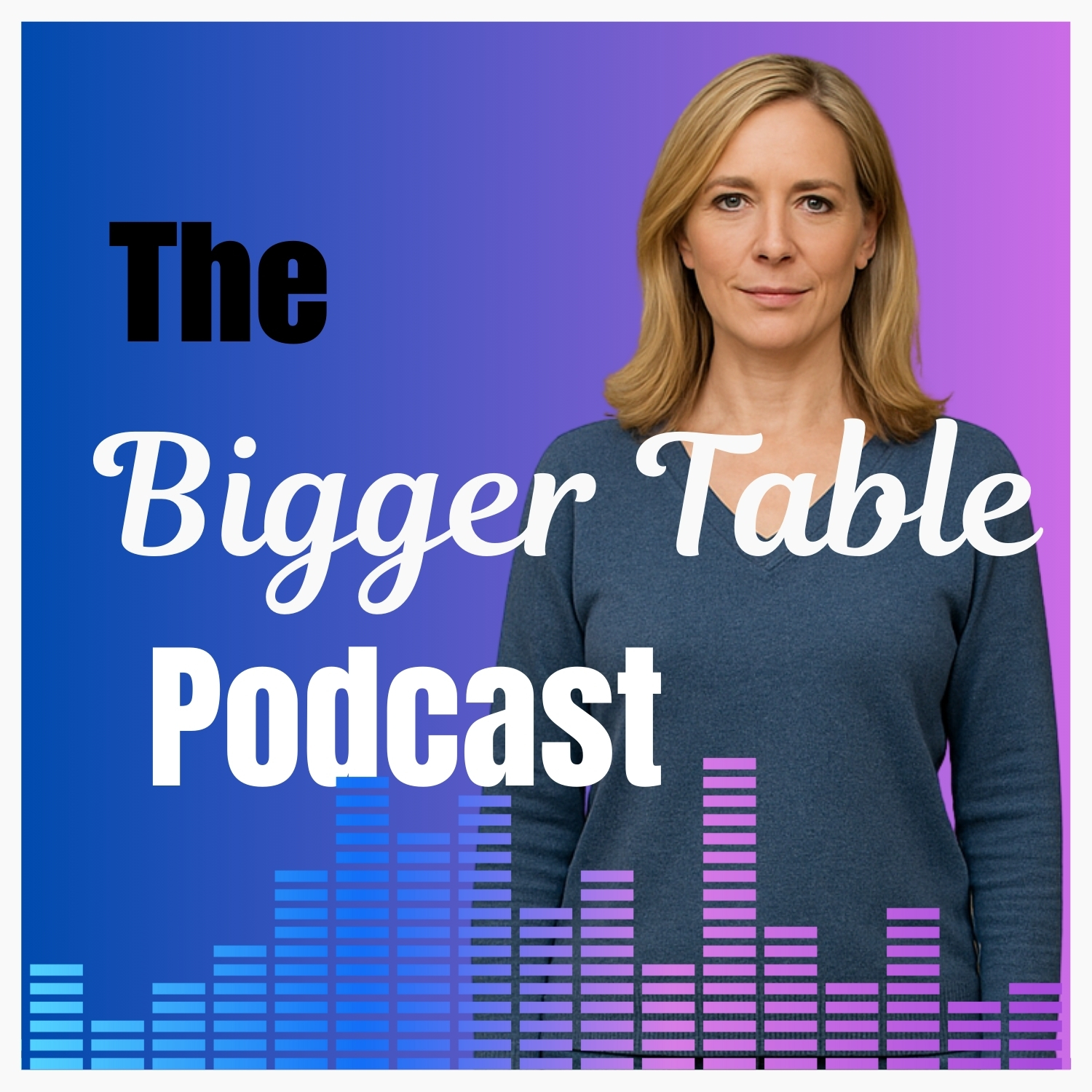Canada's Strategic Dance: Balancing Ties with the EU and US


Canada’s U.S. dependency is risky. In this episode, we examine why the EU may offer a more intelligent, stable path for trade, security, and leadership.
Join host Abbey Inglewood in the latest episode of "Bigger Table," as we explore Canada's evolving international relationships and why leveraging partnerships, rather than relying on a single ally, is crucial for the nation’s future. Titled "What if I told you Canada's biggest ally might also be its biggest liability," the episode delves into Canada's deep-seated ties with the United States, assessing how political fluctuations and trade tensions south of the border threaten Canada's economic stability.
Abbey navigates the intricate dynamics of Canada’s partnership with the EU. Discover how agreements like CETA solidify economic ties and how shared values in democracy, human rights, and climate leadership lay the groundwork for deeper collaboration. The discussion unveils the potential for innovation in clean energy and digital privacy, emphasizing how Canadian firms stand to benefit from EU's stable governance.
However, the episode doesn't shy away from challenges; listeners will learn about the logistical hurdles and regulatory complexities within the EU that pose obstacles for Canadian businesses. The conversation also touches on the agricultural sector’s concerns and the political impracticalities of full EU membership.
In a world of shifting alliances, the message is clear: Canada doesn't have to choose between the U.S. and the EU. Instead, this episode champions a strategy of multilateralism and strategic partnerships, urging for a bigger table where more voices are heard, and fewer walls are built. Tune in and discover how Canada can lead with resilience and pragmatism in an unpredictable global landscape.
00:00:00.017 --> 00:00:04.057
00:00:04.457 --> 00:00:08.277
00:00:10.617 --> 00:00:15.157
00:00:15.257 --> 00:00:20.157
00:00:20.757 --> 00:00:25.397
00:00:25.397 --> 00:00:29.877
00:00:30.057 --> 00:00:34.417
00:00:34.837 --> 00:00:39.317
00:00:39.317 --> 00:00:44.097
00:00:44.677 --> 00:00:49.277
00:00:49.277 --> 00:00:53.457
00:00:54.217 --> 00:00:58.857
00:00:58.857 --> 00:01:04.457
00:01:07.538 --> 00:01:11.918
00:01:11.918 --> 00:01:13.778
00:01:14.138 --> 00:01:18.598
00:01:18.598 --> 00:01:22.538
00:01:22.838 --> 00:01:25.538
00:01:25.898 --> 00:01:29.518
00:01:29.918 --> 00:01:34.378
00:01:34.378 --> 00:01:37.278
00:01:37.778 --> 00:01:43.398
00:01:43.398 --> 00:01:48.398
00:01:48.818 --> 00:01:52.558
00:01:53.038 --> 00:01:57.698
00:01:57.698 --> 00:02:01.718
00:02:03.338 --> 00:02:07.858
00:02:07.858 --> 00:02:11.658
00:02:12.358 --> 00:02:14.398
00:02:14.398 --> 00:02:17.938
00:02:18.098 --> 00:02:22.778
00:02:22.778 --> 00:02:25.678
00:02:25.918 --> 00:02:30.338
00:02:30.338 --> 00:02:31.378
00:02:32.478 --> 00:02:36.098
00:02:36.318 --> 00:02:40.278
00:02:40.278 --> 00:02:43.858
00:02:44.518 --> 00:02:49.658
00:02:49.858 --> 00:02:53.718
00:02:53.958 --> 00:02:57.318
00:02:58.178 --> 00:03:03.498
00:03:03.498 --> 00:03:04.838
00:03:05.158 --> 00:03:08.738
00:03:08.998 --> 00:03:11.458
00:03:14.686 --> 00:03:18.806
00:03:19.206 --> 00:03:22.726
00:03:23.106 --> 00:03:25.446
00:03:26.126 --> 00:03:32.706
00:03:32.706 --> 00:03:39.046
00:03:39.746 --> 00:03:42.966
00:03:43.366 --> 00:03:47.286
00:03:47.506 --> 00:03:51.166
00:03:51.686 --> 00:03:56.606
00:03:56.606 --> 00:04:00.806
00:04:01.266 --> 00:04:05.366
00:04:07.366 --> 00:04:10.366
00:04:10.726 --> 00:04:13.986
00:04:14.426 --> 00:04:18.806
00:04:18.966 --> 00:04:20.906
00:04:21.386 --> 00:04:26.486
00:04:26.486 --> 00:04:29.206
00:04:29.786 --> 00:04:34.906
00:04:35.366 --> 00:04:39.786
00:04:39.786 --> 00:04:41.706
00:04:42.566 --> 00:04:46.946
00:04:46.946 --> 00:04:52.306
00:04:54.926 --> 00:04:59.666
00:05:00.166 --> 00:05:03.086
00:05:03.746 --> 00:05:08.246
00:05:08.586 --> 00:05:11.746
00:05:12.146 --> 00:05:16.546
00:05:16.546 --> 00:05:17.986
00:05:19.466 --> 00:05:20.646
00:05:20.646 --> 00:05:25.326
00:05:25.486 --> 00:05:29.186
00:05:29.966 --> 00:05:34.486
00:05:34.486 --> 00:05:38.366
00:05:38.706 --> 00:05:40.926
00:05:41.646 --> 00:05:45.446
00:05:45.446 --> 00:05:50.306
00:05:50.306 --> 00:05:53.586
00:05:53.586 --> 00:05:57.886
00:05:58.486 --> 00:06:02.986
00:06:03.786 --> 00:06:07.706
00:06:07.706 --> 00:06:13.106
00:06:13.106 --> 00:06:14.446
00:06:16.612 --> 00:06:21.152
00:06:21.572 --> 00:06:24.692
00:06:25.572 --> 00:06:28.692
00:06:28.972 --> 00:06:34.712
00:06:35.052 --> 00:06:39.872
00:06:39.872 --> 00:06:41.132
00:06:41.812 --> 00:06:46.472
00:06:46.612 --> 00:06:51.372
00:06:51.372 --> 00:06:52.672
00:06:52.972 --> 00:06:57.452
00:06:57.452 --> 00:06:59.752
00:07:00.112 --> 00:07:03.012
00:07:03.552 --> 00:07:07.672
00:07:08.312 --> 00:07:11.652
00:07:12.032 --> 00:07:17.312
00:07:17.312 --> 00:07:18.732
00:07:19.212 --> 00:07:23.392
00:07:23.692 --> 00:07:26.512
00:07:27.312 --> 00:07:32.212
00:07:32.212 --> 00:07:35.532
00:07:36.072 --> 00:07:38.652
00:07:41.892 --> 00:07:46.212
00:07:46.532 --> 00:07:50.652
00:07:51.112 --> 00:07:53.912
00:07:54.532 --> 00:07:57.372














